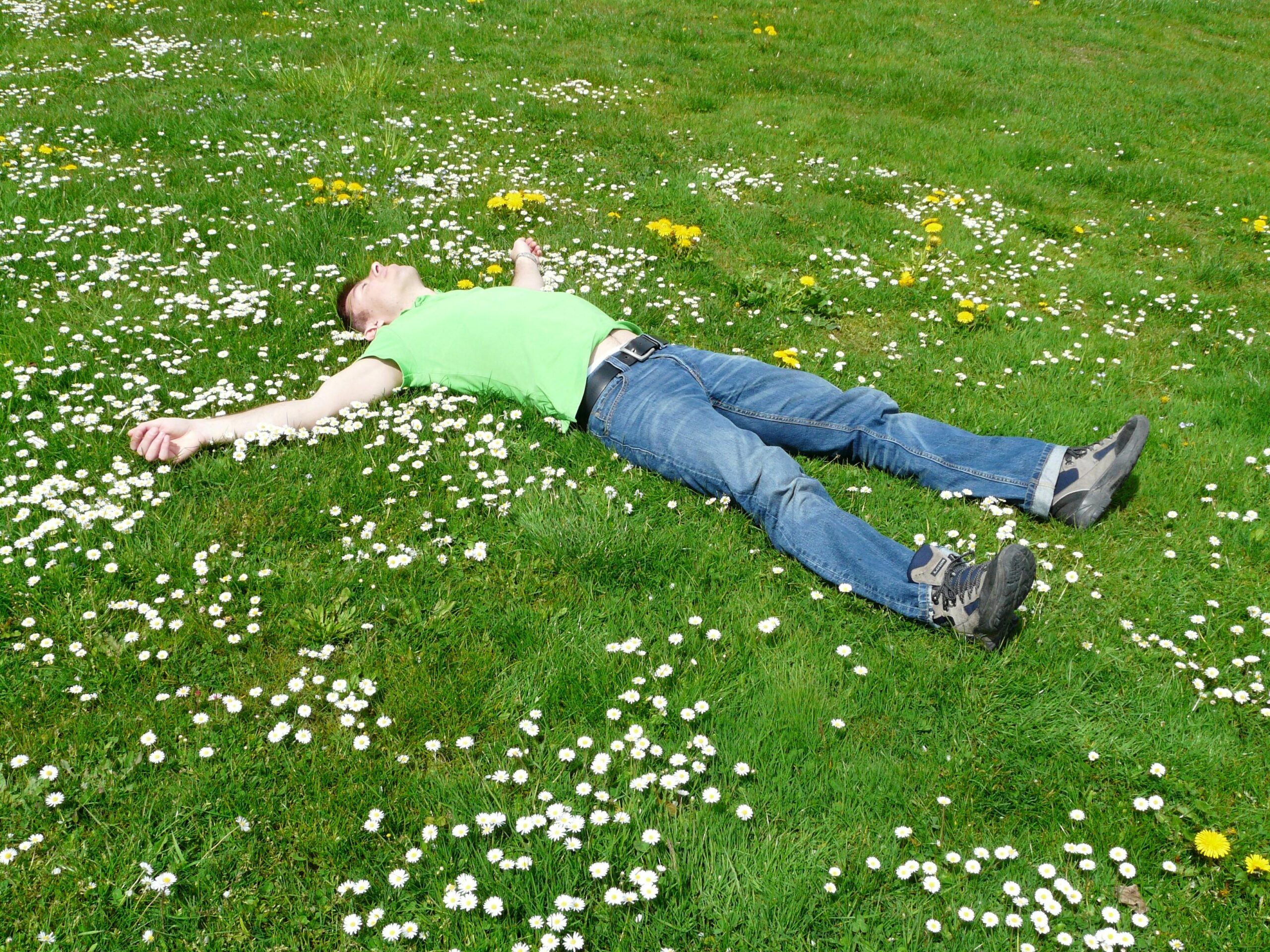How to Rest Without Guilt: Letting Go of Productivity Pressure and Finding True Renewal
How to Rest Without Guilt: Letting Go of Productivity Pressure and Finding True Renewal
Rest is not laziness — it’s a vital part of healing, growth, and emotional resilience. This reflective post explores why we feel guilty about slowing down and how to reclaim rest as a necessary act of self-care.
Read Disclaimer
Somewhere along the way, many of us were taught that rest must be earned. That it’s only justified after exhaustion, that we must be productive before we can deserve stillness. Rest, we learned, is not a right — it’s a reward. So we push ourselves through tired mornings and late nights, measuring our worth in what we produce, achieve, or finish. And when we finally stop to breathe — when we sit still, cancel plans, say no, or take a nap — a quiet guilt creeps in. That nagging voice that whispers, “You’re being lazy. You should be doing more. Other people don’t stop.”
This guilt isn’t always loud, but it’s persistent. It disguises itself as motivation, discipline, or responsibility. But underneath, it’s fear — fear of being judged, of falling behind, of not being enough unless we’re constantly in motion. It’s a symptom of a culture that glorifies hustle and equates rest with weakness. And it’s costing us dearly. Not just in burnout or stress-related illness, but in lost moments of peace, clarity, and connection with ourselves. Rest becomes a battle instead of a balm.
Learning to rest without guilt is not just a lifestyle choice — it’s a process of unlearning. Unlearning the belief that your value is tied to your output. Unlearning the idea that you must constantly prove yourself to be worthy of a break. It’s remembering that rest is not indulgent — it’s intelligent. The human body is not designed for constant performance. The mind needs recovery. The heart needs space. Just like we exhale after every breath in, we need quiet after effort. Rest is nature’s rhythm. We were never meant to override it.
To begin this shift, it helps to notice the stories you carry about rest. When you lie down in the middle of the day, what do you tell yourself? When you cancel a commitment to protect your peace, how do you feel? When you slow down, what fears rise to the surface? Guilt often stems from internalized messages — maybe from childhood, work environments, or society at large — that equate rest with failure. But rest is not failure. Rest is restoration. Athletes know this. Muscles don’t grow during exercise — they grow during rest. So why do we believe our minds, hearts, or spirits would be any different?

Rest isn’t only about sleep or vacations. It’s also about micro-moments. The pause between tasks. The deep breath before a meeting. The choice to go for a walk instead of checking emails. The silence after you put down your phone. These tiny acts of slowing down matter. They signal to your nervous system that you are safe. They tell your mind it doesn’t have to be in survival mode. They bring you back to presence. Back to yourself.
And yes, rest may feel uncomfortable at first. Stillness often reveals the noise we’ve been running from. When we stop, the emotions we’ve pushed aside may rise to the surface. Boredom, sadness, restlessness. That’s okay. Rest is not just about physical recovery — it’s also emotional integration. It’s where we digest the day, reflect, feel, and reconnect with our inner world. It’s not always easy, but it’s always necessary. You can’t heal what you don’t allow yourself to feel.
Another reason guilt shows up during rest is comparison. We live in a world where other people’s productivity is constantly on display. Social media has turned busyness into a badge of honor. It’s easy to look at someone else’s highlight reel and feel inadequate — like we’re falling behind or not trying hard enough. But here’s the truth: your worth is not a race. Your timeline is not broken. The person who is resting is not behind — they’re wise enough to listen to what they need.
You are allowed to rest even if your to-do list is not finished. You are allowed to rest even if other people are working. You are allowed to rest even if you don’t feel completely burned out yet. You don’t need to collapse in order to justify slowing down. You don’t need a crisis to give yourself permission. You are allowed to rest simply because you are human — not a machine, not a robot, not a productivity tool. A human being, with limits, rhythms, and needs that are not only real but sacred.
As you begin to let go of guilt, try replacing it with curiosity. Instead of “I shouldn’t be resting,” ask, “What does my body need right now?” Instead of “I’m wasting time,” wonder, “What if this stillness is exactly what I need?” Instead of punishing yourself for taking a break, try thanking yourself. Gratitude is a powerful antidote to guilt. Thank yourself for listening. For slowing down. For honoring your needs, even when it feels hard.
You can also create small rituals around rest to make it feel intentional rather than indulgent. Light a candle before a nap. Play soft music during a mindful break. Take a walk without headphones. These signals help your brain understand: this is not a pause in productivity, this is the practice of care. Rest becomes sacred when we treat it that way. Not a waste of time, but an investment in wholeness.

Resting without guilt also requires boundaries. Sometimes, guilt isn’t internal — it’s mirrored in others. The colleague who shames you for logging off early. The family member who questions your decision to take a break. The friend who prides themselves on always being “on.” It can feel challenging to rest when the world around you doesn’t. But you are allowed to live differently. Your boundaries don’t have to make others comfortable — they only need to make you well.
When you choose rest, you also give others permission to do the same. You model a new way of being — one that values sustainability over burnout, depth over speed, being over doing. You break the cycle of constant exhaustion and rewrite the narrative for those around you. In that sense, your rest is not selfish — it’s revolutionary. Especially in a culture that equates exhaustion with success.
And perhaps the most important part of learning to rest without guilt is remembering that rest is not the opposite of progress. It’s part of it. Just like a field needs to lie fallow to grow again, we need space to renew. Rest allows creativity to return, clarity to surface, perspective to shift. When you’re rested, you don’t just function better — you feel more alive. You laugh more easily. You connect more deeply. You respond instead of react. You live with more presence.
There will still be days when guilt tries to return. That old programming doesn’t disappear overnight. But with practice, you’ll learn to recognize it — and to choose differently. You’ll pause, breathe, and remember: rest is not a weakness. It’s wisdom. And you are allowed to live wisely.
You don’t need to earn your rest. You already deserve it. Not because you’ve done everything right. Not because you’ve proven your worth. But because you exist. And existence — in this complex, demanding, beautiful world — is enough of a reason to pause.
So today, or maybe tomorrow, or any day that feels too heavy, let yourself rest. Not in guilt. But in grace.
FAQs with Answers:
- Why do I feel guilty when I rest?
Guilt often stems from internalized beliefs that productivity equals worth. Slowing down can trigger fear of judgment or falling behind. - Is resting the same as being lazy?
No. Laziness is avoidance without intention; rest is an intentional pause for recovery, healing, or reflection. - How can I rest without feeling like I’m wasting time?
Shift your mindset: rest is time well spent because it restores your energy, creativity, and emotional balance. - What are some healthy ways to rest?
Napping, walking in nature, meditating, daydreaming, reading, or simply doing nothing in stillness are all forms of healthy rest. - Is it okay to rest even if I haven’t finished my tasks?
Yes. Rest is not a reward for completion; it’s a need your body and mind have regardless of your to-do list. - How can I stop comparing myself to others who never seem to rest?
Remember that online productivity is often curated. Everyone needs rest — you’re simply honoring your needs more visibly. - What if people around me don’t support me resting?
You are allowed to rest even if others don’t understand. Their discomfort doesn’t mean your boundary is wrong. - How can I rest when I have so many responsibilities?
Start small. Even five-minute breath breaks or mindful pauses can nourish you. Rest doesn’t need to be long to be powerful. - Can rest actually make me more productive?
Absolutely. Rest improves focus, decision-making, and emotional regulation — all of which enhance performance. - What is “active rest”?
Active rest includes light, non-strenuous activities like stretching, walking, or creative hobbies that soothe without draining you. - Is sleep the only kind of rest?
No. Emotional, mental, social, sensory, and spiritual rest are all vital and sometimes even more impactful than sleep. - How do I reframe rest as something positive?
Remind yourself that rest is a tool, not a treat. It helps you stay well, think clearly, and engage more meaningfully with life. - Can resting improve mental health?
Yes. Rest reduces cortisol, calms the nervous system, and allows the brain to process emotions and thoughts more clearly. - How do I create a daily rest practice?
Schedule intentional pauses, set digital boundaries, and treat those moments as non-negotiable acts of care. - What if I feel anxious during rest?
That’s normal. It takes time for the nervous system to adjust. Start slowly and anchor with breathing or soothing rituals.
